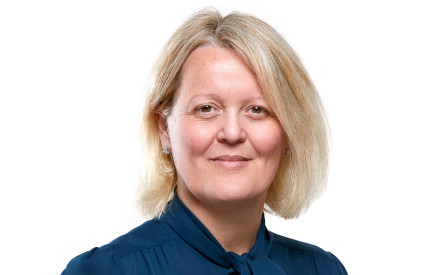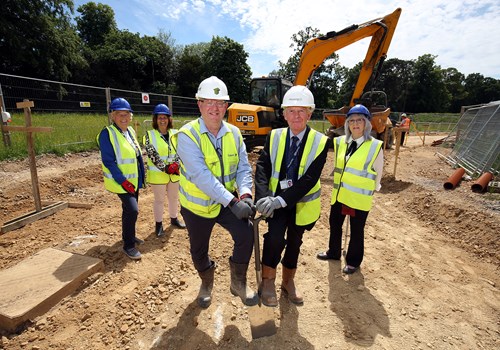Eddisons acquires Budworth Hardcastle in £1.8m deal
Specialist team plans to help South Yorkshire businesses develop new products
SME champion calls for post-Covid moves to steer UK from recession
- Clearly communicate the distinction between actions that a business must take, and the steps that a business might choose to take, when changing or introducing regulatory requirements.
- Make effective use of intermediary bodies when communicating changes to regulation.
- Publish illustrative examples of compliance to help small firms understand what good practice looks like
- Introduce grace periods after regulatory changes are introduced to avoid penalising those doing their utmost to comply.
- Minimise restrictions or red tape on schemes that are designed to help businesses, like furlough.
ABP plans guided tours of Grimsby’s Kasbah for open day event
Report reveals increasing strength of investment in woman-led companies
- in 2021, 34% of venture capital deals made by code signatories were in companies with at least one female founder, compared to an industry average of 24%
- in 2021, the average amount of Angel (early-stage) investment being sought by all-female teams (£791k) was very similar to all-male teams (£823k). This is a significant and encouraging change from 2020, when all-female teams requested less than 50% of the amounts requested by male-only teams
- the number of code signatories has now reached 160, with a notable increase in the number of venture and growth capital firms joining, accounting for 34 of the 53 new signatories in the year to 31 March 2022
“Significant progress is being made but there will be more to do in the time ahead, so I’m looking forward to working with businesses to ensure all entrepreneurs are able to make the most of their talents and I encourage more lenders and investors to sign up to the code.”
Hat-trick of new partners at LCF Law
SSE Thermal and Equinor to acquire Triton Power in acceleration of low-carbon ambitions
LEP leaders gather again to identify priorities for the future
Local Enterprise Partnership business leaders have gathered in London for the first time since the pandemic and the conclusion of the government’s LEP Review, to identify their priorities for the future as they develop their delivery plans and some prepare to integrate into regional authorities.
Their focus was on digital economy, science and innovation, and international trade, including a commitment to working with government to identify how LEPs can help deliver the UK digital strategy.Ground-breaking ceremony marks the start of construction on £3.25m extra care scheme extension
WDH to build 1,920 new affordable homes in Yorkshire
Yorkshire social housing provider, WDH, is to develop 1,920 new homes for affordable rent and sale through shared ownership across the county.
The new homes will be delivered over the next five years, alongside an investment of over £150 million in improving WDH’s existing homes to help build better places for people to live, helping to create more confident communities.
Sue Young, executive director of investment at WDH, said: “It is our vision to create confident and sustainable communities by building new, affordable homes in Yorkshire. Our partnerships with Jack Lunn and other developers will help us provide high quality family homes for affordable rent and for sale through shared ownership providing a range of options for people to get on the property ladder or pay a more affordable rent as the cost of living goes up.
“It will also allow us to achieve our ambition of building more energy efficient homes each year. Building new homes allows us to continue to generate income that we can put back into improving our existing housing stock, as well as providing vital support services for our customers.”
Recently Cllr Denise Jeffery, leader of Wakefield Council, visited one of WDH’s new build schemes at Marshall Drive in South Elmsall. The £2.4 million, 18 home development by Jack Lunn Ltd, includes one and two bedroom bungalows, two and three bedroom houses and one four bedroom home for affordable rent, providing better places to live for local families, as well as older people or those with a disability.
Cllr Denise Jeffery, leader of Wakefield Council, said: “I was very impressed with the site at South Elmsall, the homes have given the area a new lease of life, replacing the old flats that stood there. Creating new and affordable homes is extremely important. Having a good home that is safe and warm gives stability and reduces pressure that people might be under, whilst supporting them to keep their jobs and spend locally.
“This forms part of a much larger programme of activity led by the Council to increase affordable housing supply across our district, including the release of our own land to enable the delivery of high-quality affordable homes that meet the specific needs of our residents.”
This project, which is due for completion in Summer 2022, is just one of many new build projects from WDH.
Andrew Lunn, construction director at Jack Lunn Ltd, said: “It has been a great opportunity to work in partnership with WDH on such an exciting project in South Elmsall. As a local developer we understand the urgent need for this type of housing and very much look forward to completing on these properties very soon and looking at future developments with WDH.”












